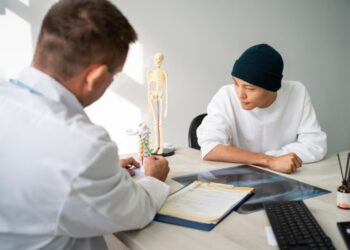Car accidents can be stressful and overwhelming, especially when they result in injuries or property damage. In Tampa, FL, it’s important to know the legal process for seeking compensation to cover medical bills, vehicle repairs, and other related expenses. Understanding the steps involved can help accident victims protect their rights and recover the damages they deserve. This guide outlines the legal process for seeking damages after a car accident, starting with documenting the incident and gathering evidence.
Documenting the Accident and Gathering Evidence
The first step after a car accident is to document the scene and gather as much evidence as possible. If you are physically able and the area is safe, take photos of the accident scene, including vehicle positions, damage to the cars, and any visible injuries. These photos can serve as valuable evidence when you file your claim later.
Getting witness information is also important. If there are bystanders who saw the accident, ask for their contact details. Their statements may be crucial if there are disputes about what happened or who is at fault. When the police arrive, cooperate with them and make sure a police report is filed. This report will include details that can help support your claim, such as the officer’s observations and any citations given to the other driver.
Medical visits and records also play a big role in building a strong case. Keeping detailed records of all medical visits, treatments, and prescriptions is essential. This information shows the extent of your injuries and helps link them directly to the accident. Without clear documentation, it may be harder to get the compensation you need.
Consulting a Car Accident Lawyer
If you’ve been in an accident, consulting a Tampa car accident lawyer can help you understand your legal options and the process for seeking damages. An experienced lawyer can guide you through the legal steps, from filing your claim to negotiating with insurance companies. They know the tactics that insurance adjusters may use to minimize payouts and can help you build a strong case to get fair compensation.
A lawyer’s role is not just limited to paperwork; they also represent you in negotiations and, if necessary, in court. Having legal support increases your chances of getting a settlement that covers your medical expenses, lost wages, and property damage. If the other party disputes liability or if there are complications with your insurance claim, a lawyer can provide the representation you need to defend your rights.
By following these steps and seeking professional legal advice, you set yourself up for a better outcome in your car accident claim. Taking immediate action and documenting everything can make a significant difference in the amount of compensation you receive.
Filing an Insurance Claim
After gathering evidence and consulting a lawyer, the next step in seeking damages after a car accident is filing an insurance claim. This involves providing the insurance company with all the necessary details about the accident, including the police report, medical records, witness statements, and photos of the accident scene. The information helps support your claim and shows the extent of the damage and injuries you sustained.
When dealing with insurance companies, it’s important to be prepared. Insurance adjusters may try to minimize the payout or argue that the injuries are not as severe as claimed. They might also question the cause of the accident or shift the blame. Working closely with your lawyer at this stage is helpful, as they can communicate directly with the insurance company on your behalf, making sure your claim is backed by strong evidence.
It’s essential to keep track of all communication with the insurance company, including emails, phone calls, and letters. This record can be useful if disputes arise later. Filing your claim promptly and with the correct documentation can improve the chances of receiving a fair settlement. If the insurance company offers a settlement, review it with your lawyer to determine if it adequately covers your expenses and losses.
Understanding Liability and Fault in Florida
Florida operates under a no-fault insurance system, which means that after an accident, your own insurance will usually cover your medical bills and other expenses, regardless of who caused the accident. This is covered under your Personal Injury Protection (PIP) insurance, which is required for all drivers in the state. However, PIP has limits, and it may not cover all expenses, especially in serious accidents.
If your injuries are severe, you may be able to seek damages beyond what PIP covers by filing a claim against the at-fault driver. In these cases, determining liability and fault becomes very important. You must prove that the other driver was responsible for the accident through negligence, such as speeding, distracted driving, or other reckless behavior.
Establishing fault requires strong evidence, such as witness statements, traffic camera footage, or the police report. Your lawyer plays a key role in building this case, gathering the necessary evidence, and proving that the other driver’s actions directly led to the accident and your injuries. This allows you to seek compensation beyond your PIP coverage for medical expenses, lost wages, and pain and suffering.
Negotiating a Settlement or Going to Court
Once liability is established and you’ve filed your claim, the next step is negotiating a settlement. Insurance companies often prefer to settle claims out of court to avoid the cost and time involved in litigation. During the negotiation process, your lawyer will present the evidence, demonstrate the extent of your injuries, and argue for the compensation amount that covers all your damages.
If the insurance company offers a settlement, it’s important to evaluate it carefully with your lawyer. Some initial offers may not be enough to cover all expenses, especially long-term medical costs or lost income. If you and your lawyer find the offer insufficient, you can reject it and continue negotiations or decide to take the case to court.
If your case goes to court, you’ll present evidence before a judge or jury. Your lawyer will argue your case, showing how the accident occurred and the damages you’ve suffered as a result. The court will then determine if the at-fault driver is liable and decide on the compensation amount. Going to court can be a longer process, but in some situations, it may be necessary to receive fair compensation.
Navigating the legal process after a car accident involves several steps, from gathering evidence and filing an insurance claim to negotiating a settlement or going to court if needed. Understanding the laws in Florida and working with a lawyer can make a big difference in the outcome of your case. Acting quickly and documenting everything carefully can help you recover the compensation you need to cover your injuries and losses.










